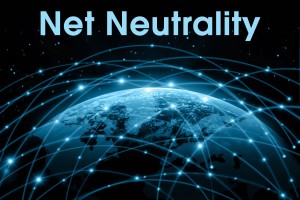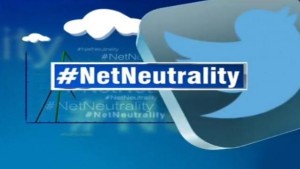In this blog post, Pragati Dwivedi, who is currently pursuing a Diploma in Entrepreneurship Administration and Business Laws from NUJS, Kolkata, explains why countries are barring the zero-rating policy adopted by Internet Service Providers.
The debate over the underlying principle of Net Neutrality had certainly raised the issues relating to the data equality in consonance to the requisite regulation on Internet. There exists a legal framework about net neutrality in different countries; wherein duty has been posed on the Internet Service Providers not to discriminate the treatment of usage or prioritization of traffic among various services. In pursuance to the larger interest of the consumer and safeguarding the freedom of expression, it thereby necessitates the role of the Regulating Authorities to ensure that there shall not be any curtailment of innovation or abusive discrimination in access to networks. The authors of this research paper would comprehend that in the absence of the proposed rules, the telecom companies would devise tiered services and charge differential prices which shall consequently hamper the interest of the consumers. The growing competition among the service providers resulted in the abuse of the dominant position, thereby raising the economic threshold for the new entrants. The contention sought by the ISPs showcased their interest in the share of profits earned by the data providers to meet their infrastructural costs which evidently witnessed such arrangements made in this regard with the dominant players for providing improved services in return. But this resulted in discrimination against others which could not meet up the demand of the service providers and as a result disrupted services resulting in loss of customers. Thus, the authors would indulge in the aspects relating to internet freedom and the role of the regulating agencies to ensure that there prevails a healthy competition in the market, thereby promoting economic equality and development. A comparative analysis would also be drawn with the legislations in various countries in this regard and the ramifications of the applicability of this principle of net neutrality concerning Indian perspective.
The internet which is sought to be the reflection of our society provided us with a platform creating new opportunities through innovation. It has fostered the supremacy of the ideas wherein it has been described as an information network operating between the users and the content providers. Further, delving upon the debatable principle of Net Neutrality been defined by TRAI as the concept whereby applications are processed and delivered without any prior discrimination by the intermediate service providers.[1]The situation has culminated to the extent that such concern couldn’t be neglected as it has embarked upon the course of public interest in this regard as internet fulfills the eligibility of the public resource having no ownership rights. Though, with the technical advancements there has been an assorted increase in the internet traffic pressurizing the service providers to invest sizeably in the infrastructure to cope up with the requisite demands. Then again, these telecoms are facing stiff competition from the Over-the-Top (OTT) services leading to undesirable revenue distribution generated from the users. The Telecom Regulatory Authority of India (TRAI) has even released a consultation paper on such OTT services defining the concept and the inherent functioning of the existing legal framework.[2] The objective of such paper was to highlight the disruptive changes in the services in pursuance to the regulatory framework imposing restrictions on the discriminatory practices and thereby stretching upon the aspect of net neutrality in this regard. The duty has been imposed on the State to ensure non-discriminatory method for the distribution of natural resource like spectrum, which would necessarily result in safeguarding the public interest.[3] The countries of Chile, Norway, Netherlands, Finland, Iceland, Estonia, Latvia, Lithuania, Malta and Japan have barred the zero rating policy because most of these countries have found zero rating a discriminatory practice which threatens access to an open, neutral internet.[4]
Zero-rating is a practice where mobile operators (like Airtel) do not charge end consumers for access to specific websites or apps (like Flipkart.com), but instead charge the latter for the data consumed by consumers in accessing the website or app.[5] Zero-rating practices run contrary to net neutrality. ‘The main aim of net neutrality law is to guarantee free access to the internet. The telecommunication law of this country allows cutting off the subscribers, but only in the limited circumstances. It prohibits the ISPs and the telecom companies “from blocking, obstructing or delaying in any way, services and other internet and telecom traffic, unless necessary for reasons of congestion management, security, continuity of the network, etc.”[6] “This blocking shall only be lawful, when necessary, to protect the integrity and security of the network or users’ terminals.”[7] “The one significant exception to the net neutrality provision against throttling is a religious exception.”[8] “This exception allows internet users to request an ISP to filter their internet traffic by blocking certain services and applications based on ideological grounds.”[9] The law also strictly and explicitly prohibits the price discrimination practices adopted by the Dutch Telecommunication Companies.
How Zero-Rating and Net Neutrality affects Consumers interests?
Net neutrality is a kind of network set up that calls for a need to have a neutral public network without any discrimination practiced by the telecom companies and the Internet Services Providers, in charging for their services. The entire idea of net neutrality involves arguing for bringing in a regulatory mechanism to protect the consumers from the abusive practices of the ISPs and Telecom Companies from their abusive practices.
The basic question from where the debate evolves is that “what exactly the problem is if the ISPs or TSPs are charging people for accessing data. To answer that question, the problem arises from the point, where these companies fix differential charges for different pages.”[10] And the main reason why the telecom companies are very much inclined towards the adoption of such a policy is that they want to cover their losses which have been a result of the innovation of over the top services like WhatsApp, Facebook, Skype, Viber, etc.,
With the increasing usage of these services, because of them being convenient, pocket-friendly and easy to access, the telecom giants have been facing a major setback with respect to the profits being extracted from the lucrative services that are usually offered by them to the general public. The telecom companies have also been continuously losing their customer base.
If the government enacts a law that that promotes Net Neutrality, the section that it would mostly be beneficial for is the general public. Firstly, the laws would restrict and limit the powers of the ISPs to regulate the data or services that the consumers/people would be able to use. This would grant the public, an unhindered data access system over the internet for the content, the access of which is lawful. “The practice is capable of killing the egalitarian nature of internet. Secondly, the ISPs would not be allowed to control the upload and download transfer rates while considering and based on what people access.”[11]
Thirdly, there would not be any “limitations set up by the ISPs with respect to the amount of data that one could upload or download” [12]online. This would not be thus, restricted by the differential pricing system for different sites. The only amount of money that the user would have to pay would be for the connection.
Apart from this, most importantly, the Net Neutrality laws would promote healthy competition in the indigenous and international markets. The telecom giants have been indulging in a new practice called Zero Rating, which, as per the policy makers, is anti-competitive as it allows the companies to charge the users extra for the data accessed which is outside the zero-rated apps. It would mean that “watching third party internet video over their open mobile internet plans instead of the zero-rated ones would eat up the monthly data allowances in the matter of few hours.”[13]
“The zero rating system would prove more disadvantageous particularly in the mobile internet access markets where the amount of data limits one can access is low.”[14] Thus, in order to protect such draconian price discriminatory practices of the Internet Service Providers and Broadband Service Providers, a regulatory framework is necessary, since, in the absence of such laws, there will be a heavy burden on the pockets of public and accessing internet would become an exceptionally costly affair, making it a luxury, and thus out of reach for the poor people.
With respect to anti-competitive practices, it becomes important to be acquainted with the much controversial issue of Facebook’s Internet.org Initiative, now renamed as Free Basics. This is a partnership between Facebook and six other companies that propose to provide affordable access to some selected internet services in some economies while enhancing efficiency and claiming to be facilitating the growth of new business models. This tie-up has been in controversy because the practice is violative of the principles of Net Neutrality as Facebook would be cherry picking the companies itself according to the criteria set by it. As a result, it would be discriminatory for the companies not on Facebook’s list. Here, Facebook would act as a gatekeeper having control over the data that could be accessed.
The appropriate laws on Net Neutrality would not just protect the interests of the consumers but would also come to the rescue of the new start-up projects. If the telecom companies are allowed to pick and choose the zero-rated apps or choose the data that can be accessed on low prices, the string of the markets would be passed on into the hands of the certain websites who would be able to pay handsome amount of money to these companies for making their respective websites easily accessible to the people at affordable prices, thereby making the access of other content chargeable. This would thus hamper the healthy competition in the markets, which would not just be infringing the rights of the budding entrepreneurs setting up their business over the Internet, but would also eventually be laying a burden on the pockets of the consumers.
The fact that OTT services have been able to bring an “alternative to the traditional services should not be discouraged, rather encouraged, as it promotes innovation in the local markets in the contemporary times.”[15] Thus, by keeping minimal but reasonable regulations, the Indian society would greatly encourage innovation. Another way of looking at this would be that minimal amount of regulations and innovation-friendly environment provided by the India, would certainly “attract a lot of foreign investment into the country, that would consequently expedite the process of development in India,”[16] The benefits of which would touch upon the mass population.
This is how the laws on net neutrality may protect the interests of consumers as well as that of “the small companies and start-ups that would be able to have a neutral platform keeping them at par with the well-established companies like Google and Facebook.”[17]
Conclusion: the way forward
The countries all over are contending to find the balance between the competing positions and the interests in the Net Neutrality debate, whereby at the same time substantiating the principle for larger public interest. This principle ensures the freedom of speech and expression, which in absence would entitle the internet service providers to disrupt the services and availing benefits arising out from it. The distressing effect would be the innovators and new entrants devoid of the platform to enhance their schemes befitting for the dominant players to control the market strategies without facing competition. The government in this regard can give free services on the internet which would be a positive discrimination and not in violation of the principle of net neutrality, thus permitted befitting the public interest. The application providers cannot be allowed to act as gatekeepers for using network operations even though used for the explicit public purpose. There arose the need for the regulatory authority to ensure the internet services to be non-discriminatory and openly accessible to enhance the potential of the users. The recommendation made by the committee for replacing the existing legal frameworks needs to be emphasized upon as the provisions of the governing Act has become redundant while dealing with the issues arising in this advanced technology, thus interim measures to be adopted for regulating the license conditions and the allocation of such resource. It is necessary both to secure the interests of the ISPs and the end users, but the netizens to be made a priority as it would resultantly lead to the promotion of the innovations, economic and technical development of the country. Thereby, transparency and neutrality need to be maintained while coping with the disruptions through advancement in the technical aspect in pursuance to the capacity building and active engagements with the interested parties, which would significantly change the manner in which people communicate today for better.
Footnotes:
[1] Telecom Regulatory Authority of India (TRAI) Recommendations on Issues related to Internet Telephony, 18th August 2008.
[2]The Consultation Paper on Regulatory Framework for Over-the-Top services, Consultation Paper No. 2/2015, available at http://www.trai.gov.in/WriteReaddata/ConsultationPaper/Document/OTT-CP-27032015.pdf, last accessed on 07/01/2016.
[3]Centre for Public Interest Litigation v. The Union of India, (2012) 3 SCC 1.
[4] http://timesofindia.indiatimes.com/tech/tech-news/Zero-rating-What-are-countries-doing-about-it/articleshow/47001571.cms
[5] http://timesofindia.indiatimes.com/tech/tech-news/Zero-rating-What-are-countries-doing-about-it/articleshow/47001571.cms
[6]Ibid
[7] Ibid
[8] Ibid
[9] Ibid
[10] Shreya Pandey, “Net Neutrality: India Perspective” –available at
www.manupatra.com (last accessed on January 13th, 2016)
[11]http://blogs.timesofindia.indiatimes.com/toi-edit-page/the-net-benefits-of-neutrality-equal-access-to-the-internet-is-vital-to-create-new-entrepreneurs/ – (last accessed on 14/01/2016)
[12] http://www.philforhumanity.com/Pros_and_Cons_of_Net_Neutrality.html – (last accessed on 14/01/2016)
[13] Supra Note 24
[14] Supra Note 18.
[15] Response to the TRAI Consultation Paper on the Regulatory Framework for Over-the-Top Services – available at http://cis-india.org/telecom/blog/trai-response-paper.pdf (last accessed on January 13th, 2016)
[16] Ibid.
[17]http://blogs.timesofindia.indiatimes.com/toi-edit-page/the-net-benefits-of-neutrality-equal-access-to-the-internet-is-vital-to-create-new-entrepreneurs/( accessed January 13, 2016).
 Serato DJ Crack 2025Serato DJ PRO Crack
Serato DJ Crack 2025Serato DJ PRO Crack














 Allow notifications
Allow notifications


